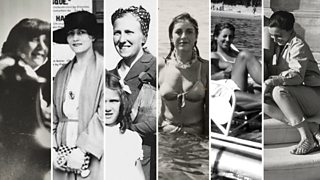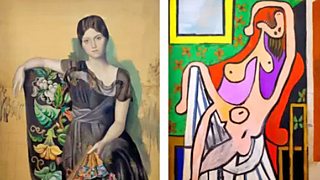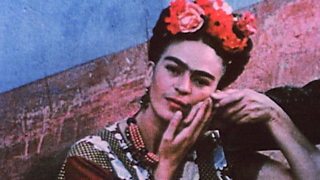Unfinished sympathy: Jane Birkin on Serge Gainsbourg
20 June 2017
Since his death in 1991, singer and actor Jane Birkin has continued to revisit the songs of Serge Gainsbourg and their turbulent relationship. With a new album of symphonic Gainsbourg songs, ALASTAIR McKAY finds her still the guardian of his legacy and curator of their passion.

On her latest LP, Birkin/Gainsbourg: Le Symphonique, Jane Birkin does a strange thing. She reinterprets the songs written by her one-time partner Serge Gainsbourg about the disintegration of their relationship.
Musically, the tunes are spruced up, with cinematic orchestration (arranged by by Nobuyuki Nakajima) replacing the playful sensuality of Gainsbourg’s brand of (un)easy listening. Birkin was familiar with the content of the songs, but on revisiting them, discovered they were growing more poignant.
Birkin’s relationship with Gainsbourg, the songwriter who perverted the chanson, has long been the subject of fascination
“They were my favourite songs,” Birkin says. “It sounds weird because they were songs that were written when I left Serge, for the most part, but they were the most beautiful songs on separation.”
Birkin’s relationship with Gainsbourg, the songwriter who perverted the chanson, has long been the subject of fascination, not least because they lived their lives in public, and Gainsbourg documented their ins and outs in his lyrics.
“Perhaps I realise now quite how beautiful they are,” says Birkin, “and how painful and exact they are. Even to the months where one was lying – even the months are correct – they rhyme. There’s a song which I’m very much attached to, called Une Chose Entre Autres, where he made me sing “One thing amongst other things that you don’t know is that you had the very best of me, more than anyone else,” and it’s true.
“Every song since when I was 20 until I was 45, and he died after having written the last LP for me, which was Amours des Feintes. I don’t know whether it’s existed in songwriting before; that you’ve had the same author, until he died. In spite of you not being with him.”
Famously, Birkin met Gainsbourg when she – an English beauty heartbroken from the collapse of her marriage to film composer John Barry – was cast with him in Slogan, a Pierre Grimblat film, in 1968.
Having first mistaken Gainsbourg’s shyness for contempt, she was surprised when an evening’s dancing concluded with Serge passing out, drunk, on his hotel bed. In the UK, the passion of their relationship was captured in the orgasmic disco of Je T’Aime (Moi Non Plus) – a tune originally recorded by Brigitte Bardot.
Gainsbourg had a particular interest in getting actresses to sing. “Edith Piaf asked him to write for her,” says Birkin. “But he said it wouldn’t be a present for her, it wouldn’t be a cadeau, because she needed gut songs, not sophisticated songs. He wrote caustic homosexual songs, but not for Judy Garland’s daughter (Liza Minnelli) – there was too much voice.

“He also wanted to be the only person to make an actress sing, and to get the most beautiful. From Adjani to Deneuve, he got them all. Everybody that was a great actress in France, Serge was the one they would make a record with. If they only sung once, it was with him.”
Serge was always in control of everything. He was the main part of anything going onJane Birkin
The chemistry of Birkin and Gainsbourg’s relationship seems unusual.
Birkin credits him with giving her confidence, “because I sang like a choirboy. He liked little boys’ voices anyway, and little boys”. But he was also controlling. “He also made me believe I could only sing his things. When I sang somebody else, he was very affronted.
“He could be very cruel in sessions. He simply couldn’t understand how I couldn’t sing Ex-Fan Des Sixties, and then the more he screamed and the more he hit me with a ruler and the more everybody tried…
“I could do such complicated things – sing so high – do things that other people sometimes couldn’t do, but something as banal for him as not being able to do that, he was amazed.”
Birkin is adamant, though, that she wasn’t exploited. She compares Gainsbourg to the fable of the scorpion and the frog, in which a scorpion asks a frog to carry him over the river, having reassured the frog that he won’t sting it, because to do so would drown them both.
“So the scorpion gets on the frog’s back, he starts swimming, and the scorpion stings him. And the frog says, ‘why?’ And the scorpion says, ‘because I can’t help it’. That’s like Serge. He always thought that if he said sorry, he would get a second chance, and he did. Mostly. He hurt a lot of people.
“He did it to (Yves) Saint Laurent, who was a darling. Serge sent off a terrible telegram: ‘I make songs that are haute couture, I don’t make prêt-à-porter’. Saint Laurent shut himself up in the dressing cupboard. He wouldn’t come out.
“Serge was always in control of everything. He was the main part of anything going on. He used to choose the restaurant, the table, the songs. When I left him, I remember him crying out ‘He’ll turn you into a nobody’ to (Birkin’s new partner, film director) Jacques Doillon. I think he believed it, and that he had made me.
“Afterwards he talked to me, man-to-man. When he had problems, we used to go off and have dinner and a chat on a bench like old people, and I was able to be his confidante about Bambou (Gainsbourg’s wife from 1981 to his death in 1991) about his strange life, and his new baby. He didn’t know how to control her, so he used to come to me.
“He could turn up for dinner any time he wanted – midnight, two o’ clock in the morning usually with policemen. I could recognise their shoes – and he’d be saying ‘Do that Lancashire hotpot that you do.’ For me it was most pleasing, because I got the best of both worlds.
“I think he never really got over the fact that I left him, really,” Birkin concludes. “But he used it. He kept saying, ‘What can I do? Religion!’ throwing his arms up in the air, and I think that’s what he made us into.”
Birkin/Gainsbourg: Le Symphonique is released on Parlophone Records.
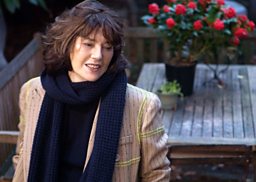

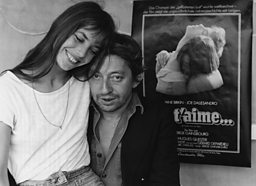
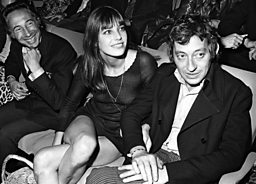

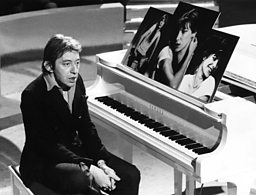
More from BBC Arts
-
![]()
Picasso’s ex-factor
Who are the six women who shaped his life and work?
-
![]()
Quiz: Picasso or pixel?
Can you separate the AI fakes from genuine paintings by Pablo Picasso?
-
![]()
Frida: Fiery, fierce and passionate
The extraordinary life of Mexican artist Frida Kahlo, in her own words
-
![]()
Proms 2023: The best bits
From Yuja Wang to Northern Soul, handpicked stand-out moments from this year's Proms
